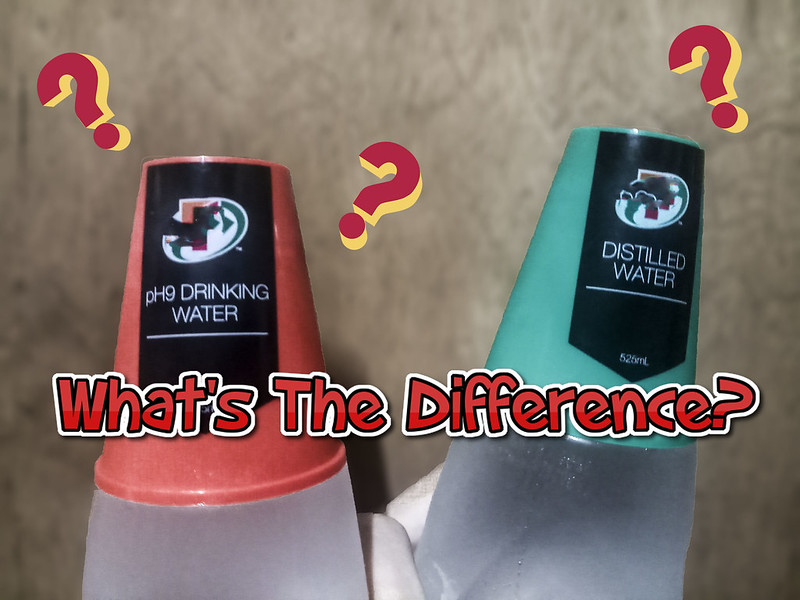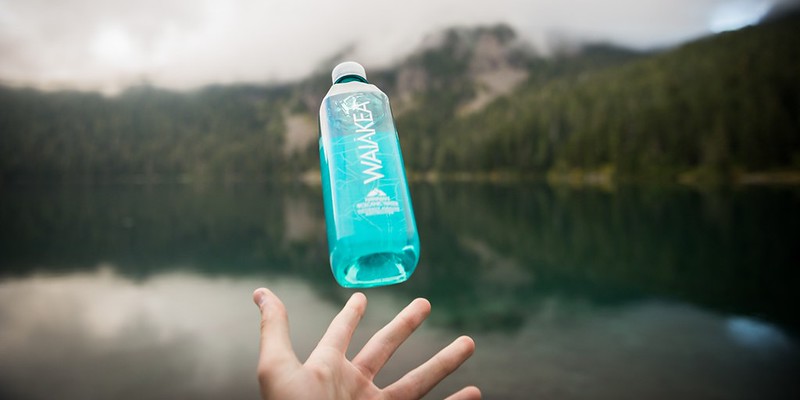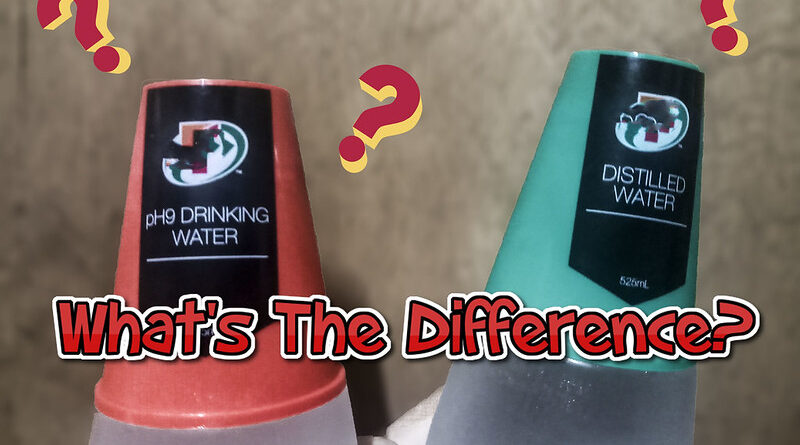Different Types of Water and Their Purpose
Water is the most essential element in life. Our body alone is made of 60% water which makes it one of the fundamental human needs. Each of us requires at least half a gallon or 2 liters of water everyday to keep our body hydrated. We need at least 20 to 30 liters of water for other purposes like cooking and cleaning. Sadly, because of water pollution, over 9 million people die prematurely because of diseases like Diarrhea and Cholera especially in developing countries where access to safe and clean water is limited. I went to some remote areas here in the country and I can personally attest that the access to safe water is indeed limited.
To prevent these deadly water-related ailments, we have to make sure that the water we use at home is clean and free from bacteria and other microorganisms that our naked eyes can’t see. Children are easily exposed to so many germs and other harmful bacteria in the water, making them prone to various ailments. As responsible home owner, it is your job to keep your water source at home clean. Your water tank, for instance, should be cleaned at least once or twice a year to prevent the growth of the so-called Legionella, a bacteria that can cause Pontiac fever and even lung infection. With rapidly evolving technology nowadays, there are many advanced equipment that we can use to properly and thoroughly clean these tanks. You can even get professional help from various water hygiene service companies (you can check out the Total Water website to see one such example of a company), who provide a wide range of services for both commercial and domestic houses or buildings.
Another alarming thing is the increasing rate of people who prefers to drink soda. In the US alone, studies show that nearly half of the population is consuming soda on a daily basis. These frequent soda drinkers often find themselves suffering from diabetes, heart disease, and even cancer. While sodas are undeniably addictive, people should consume them in moderation, or better yet they should start looking for the best alternatives to soda. Sparkling water, for instance, is relatively healthier than sugar-filled sodas.
We also have to make sure that we are drinking nothing but safe and clean water. Interestingly, my friend and I went to a convenient store the other day. We never thought that picking bottled water from the counter would end up in an interesting debate. One of us picked a Distilled Water while the other picked a Purified one. We then asked ourselves which one is better? Which one is healthier? Is there a difference at all? I decided to make my own research and listed below are the types of water and their respective purposes.

1. Mineral Water
As what the term suggests, Mineral Water is a water that naturally contains minerals. They are usually obtained from underground sources and particularly rich in minerals like calcium, magnesium and manganese. The components of mineral water may vary from brand to brand. Some brand contains higher level of minerals while others are lesser. Either which, Mineral water is a safe drinking water. The presence of minerals gives Mineral water its distinctive salty taste.
2. Purified Water
Purified water is a type of water that went through a water purification treatment. Here, the water goes through a filter water system to make sure that the water is free from any unwanted substances. This is a process where bacteria, contaminants and solid substances are being removed. This method is often done in plant through a process known as Reverse osmosis. If the reverse osmosis is not available, you can actually make your water safe for drinking through other purification methods such as boiling, filtration, distillation and chlorination. There are water purifier devices you can avail and do the purification process at home.
3.Distilled Water
Distilled Water is quite different. The water will undergo a treatment that will remove all the minerals and impurities. As far as being safe water is concerned, distilled water is considered clean and safe for drinking. Some sources even claim that drinking distilled water can help detoxify the body and improve someone’s health. The tricky part however is the fact that Distilled Water has no minerals or salts in it which can cause rapid loss of minerals in the body which might lead to mineral deficiency.
Aside from human consumption, distilled water can also be used in many commercial and household applications. It can be applied to your home humidifier and also to other industrial equipment like autoclave machine, car battery, ultrasonic, and more. Due to the fact that it has no minerals, distilled water evaporates quickly without leaving any residue which makes it ideal for mixing and formulation. Just like Mineral water, Distilled water is also widely available in different markets and you can even order them online. They are also available in different volumes. For instance, you can order a pure Golyath distilled water 5l container straight from their official webpage along with their high quality sterilization and hygiene products.
4. Sparkling Water
Sparkling water or carbonated water is a type of water that is infused with carbon dioxide gas under pressure. The gas is the reason behind the fizz or sparkles coming out from it. The taste is also slightly different. It is also important to mention that Sparkling water has 3 to 4 pH level which means it is slightly acidic. But the acid is being neutralized by our saliva. Some sources claim that Sparkling water can help relieve constipation.
5. Tap and Well Water
Tap water is the type of water that comes from your town or city water supply. It is the water that you get from your faucet. The safety will vary depending on the source and what area are you in. In US for instance, Tap water is regulated by EPA (Environmental Protection Energy) that ensures the water is safe to drink but in Developing countries, the condition is quite different and some of which is not really safe for drinking. Well water, on other hand, as what the term connotes, is a water obtained from well. This type of water is not regulated nor monitored by any agencies as most of the wells are privately owned. You can however let experts examine it to ensure that it is safe to drink.
Unlike traditional wells, water borehole offers greater benefits in terms of safety and filtering system. To retrieve the natural water source underground, this process requires a large rotary drill that will penetrate deeper into the ground. Unlike well that is commonly formed by hand using simple tools like shovel, water borehole requires the service of professionals like those Borehole Engineers Buckinghamshire services offered in England.
6. Alkaline Water
We recently came across this bottled water with a pH9 Label on it. The pH9 obviously refers to its pH level. A water with such level is considered as Alkaline water. The normal pH level of the water we consume everyday is at pH 7 while higher pH is considered alkaline. Interestingly, many sources claim that alkaline water has anti-aging properties, good for detoxification and boost immune system. Since it can neutralize acid levels in our body, some claim that it can also reduce the risk of colon cancer.
7. Spring Water
Spring Water is considered safe to drink. It underwent natural filtration process and it contains higher levels of minerals than any types of water. Spring water is either collected as it flows to the surface naturally or via a borehole, which is a narrow shaft bored into the ground to extract water or other liquids and gases from underground. Interestingly, the impurities in natural spring water provides a distinctive good taste on it.
8. Volcanic Water
Now here’s something really new. I just came across this new and interesting brand of water the other day. It’s the Waiakea Hawaiian Volcanic Water. As what the title implies, it is a water that is naturally filtered through volcanic rock from Hawaii and boosted with minerals and electrolytes. Waiakea originates as both snow melt and rain on the pristine peak of the Mauna Loa volcano on the Big Island of Hawaii. The Waiakea water ph level is 8.8 which is also considered as Alkaline. Sources claim that it helps strengthen bone structure, provides “more radiant” skin, hair, and nails, prevent free radical damage, help blood flow, and regulate the body.

With sustainable sourcing and shipping with low-emissions vehicles, the brand was the first bottled water brand ever to receive a CarbonNeutral certification. What makes it more interesting is that the brand recently announced the production of the world’s first fully degradable bottle. In cooperation with TimePlast, these PET bottles are meant to degrade after 10-15 years as opposed to 1500 years of the typical plastic bottle. That’s really a huge difference and absolutely an impressive Eco-friendly approach.
Now that you are all aware of the different types of water, you can now tell which waters suits you well.



